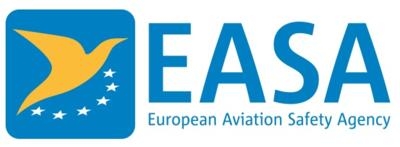Thu, Apr 27, 2017
Will Take Into Account Evolution Of Precision Guidance Systems
EASA has proposed new certification specifications (CS) for aerodrome design in order to facilitate the operations of modern large aeroplanes at existing aerodromes. Modern aircraft have very precise guidance systems for landing / take-off and taxiing; this means that the current international and European provisions for designing runway, taxiway and other areas can be lightened without compromising safety. The new proposal is meant to take this technological evolution into account.

The public consultation on this so called Notice of Proposed Amendment (NPA) ends May 31, 2017. EASA will review the comments received and prepare during the summer its decision for a regulatory change of certification specifications for aerodromes design.
With the proposed new CS, airports will be able to accept large aeroplanes within the existing infrastructure and thus increasing capacity, in particular at congested aerodromes. The proposed modification of the aerodrome CS will also generate significant cost savings for the aerodrome infrastructure: construction and maintenance costs of runways, runway shoulders, and taxiways will be reduced due to the proposed provisions. The airlines would also benefit from the proposed provisions, since they would be able to operate large aeroplanes from more aerodromes and to better plan their network.
Apart from the economic gain, the proposed provisions will have positive environmental benefits due to more efficient use of available land and reduced consumption of construction materials for infrastructure.
As from 2015 EASA, launched an initiative at EU level with the objective to find swifter solutions for the accommodation of large aircraft at existing aerodromes. From the very beginning the activity gathered experts from National Aviation Authorities (NAA), ACI Europe, aerodrome operators and manufacturing industry. Similar to the EASA initiative, the International Civil Aviation Organization (ICAO) established the Task Force at global level with the purpose to revise its Standards and Recommended Practices for aerodrome physical characteristics. The outcome of the work and proposed changes were presented to the relevant ICAO and EASA bodies with the wide agreement to be incorporated in ICAO and EASA provisions.
With the strong support from ACI Europe, the material was incorporated into the EASA NPA. EASA will synchronise its NPA public consultation process with the ICAO consultation also expected in spring 2017, which will provide a better overview of the proposed developments to ICAO Member States.
(Source: EASA news release)
FMI: www.easa.europa.eu
More News
Also: ANOTHER Illegal Drone, KidVenture Educational Activities, Record Launches, TSA v Shoes The Senate confirmed Bryan Bedford to become the next Administrator of the FAA, in a ne>[...]
Also: Sully v Bedford, Embraer Scholarships, NORAD Intercepts 11, GAMA Thankful Middle Georgia State University will be joining the Federal Aviation Administration’s fight ag>[...]
Also: DarkAero Update, Electric Aircraft Symposium, Updated Instructor Guide, OSH Homebuilts Celebrate The long-awaited Sonex High Wing prototype has flown... the Sonex gang tells >[...]
Also: Sully v Bedford, Embraer Scholarships, NORAD Intercepts 11, GAMA Thankful Middle Georgia State University will be joining the Federal Aviation Administration’s fight ag>[...]
30-Year USCG Veteran Aviator Focusing On Member Benefits The Vertical Aviation International Board of Directors announced its new leadership officers in April, and all began their >[...]
 Airborne 07.11.25: New FAA Boss, New NASA Boss (Kinda), WB57s Over TX
Airborne 07.11.25: New FAA Boss, New NASA Boss (Kinda), WB57s Over TX Airborne-Flight Training 07.10.25: ATC School, Air Race Classic, Samson School
Airborne-Flight Training 07.10.25: ATC School, Air Race Classic, Samson School Airborne Affordable Flyers 07.03.25: Sonex HW, BlackShape Gabriel, PRA Fly-In 25
Airborne Affordable Flyers 07.03.25: Sonex HW, BlackShape Gabriel, PRA Fly-In 25 Airborne-Flight Training 07.10.25: ATC School, Air Race Classic, Samson School
Airborne-Flight Training 07.10.25: ATC School, Air Race Classic, Samson School Rick Kenin New Board Chair of VAI
Rick Kenin New Board Chair of VAI



